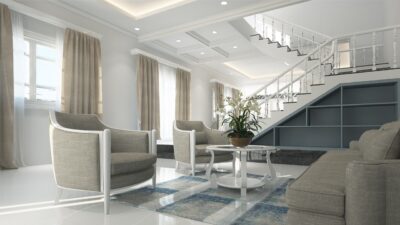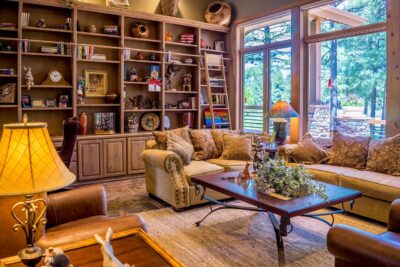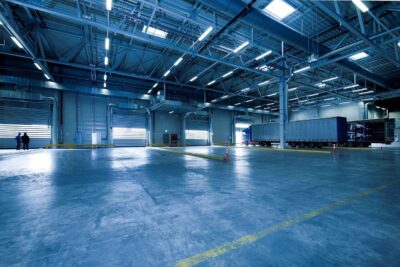
How to Retrofit Old LED Fixtures with Modern Covers
How to Retrofit Old LED Fixtures with Modern Covers By Aman | Updated on April 15th 2025 LED lighting has pretty much taken over the
Home » Understanding the Difference Between Residential vs. Commercial Light Covers
Lighting is an essential component of any space, providing functionality, ambiance, and style. While both residential and commercial lighting share the common goal of illumination, their purposes, designs, and requirements differ significantly. The distinctions between residential light covers and commercial light covers go beyond aesthetics, influencing durability, energy efficiency, compliance, and overall functionality.
Residential light covers cater to homes, emphasizing comfort, aesthetics, and personal style. Commercial light covers, on the other hand, prioritize practicality, durability, and adherence to regulations, ensuring safety and efficiency in business environments. Understanding these differences is crucial for selecting the right light covers to suit specific needs.
Residential lighting focuses on creating a warm, inviting, and visually appealing atmosphere. Home light covers are often designed to complement the interior décor, ranging from sleek and modern to classic and ornate. Popular types of light diffusers for residential use include:
In commercial settings, the emphasis shifts to functionality, efficiency, and safety. Business light covers are designed for high durability, catering to spaces like offices, warehouses, and retail stores. Common features include:
The aesthetic differences stem from their purposes: residential lighting aims to evoke emotion, while commercial lighting focuses on productivity and safety.
Residential light covers are typically paired with fixtures designed for lower wattage bulbs, sufficient for limited spaces. Commercial light covers, however, support higher wattage bulbs, ensuring adequate illumination for larger areas like warehouses or parking lots.
Commercial light covers are built to withstand heavy usage and harsh conditions, often made from robust materials like polycarbonate or acrylic. Residential covers, while durable, are not designed for the same intensity of use.
Choosing the right diffuser depends on the intended environment, with commercial settings requiring more durable and performance-oriented solutions.
Energy efficiency is a priority for both residential and commercial spaces, but the stakes are higher for businesses due to extended operating hours. Energy-efficient solutions like LED-compatible light covers are increasingly popular in both sectors, reducing electricity consumption and environmental impact.
Investing in energy-efficient light covers not only lowers utility bills but also contributes to sustainability, a growing concern in both domains.
Compliance with building codes and safety regulations is critical in commercial lighting. Business light covers must meet stringent standards, including fire resistance and electrical safety. In contrast, residential light covers are subject to less rigorous regulations, focusing more on safety and energy efficiency.
Failing to adhere to these standards can lead to fines, safety hazards, and legal issues. Selecting compliant light covers ensures both safety and peace of mind, especially in commercial environments where the stakes are higher.
The adoption of LED lighting has transformed both residential and commercial spaces. LED-compatible light covers offer benefits like:
Smart lighting is becoming a staple in modern homes and businesses, offering features like remote control, dimming, and scheduling. Light covers designed for smart systems enhance these capabilities while maintaining aesthetic appeal.
Custom solutions are gaining popularity, especially in commercial spaces with unique requirements.
The differences between residential and commercial light covers are vast, driven by their distinct purposes and requirements. Residential lighting prioritizes aesthetics and comfort, while commercial lighting focuses on durability, functionality, and compliance. Understanding these distinctions is essential for selecting the right light covers for any space.
Whether it’s a decorative globe for a living room or a robust vapor-tight cover for an industrial site, choosing the right light cover enhances both functionality and ambiance. Businesses and homeowners alike benefit from consulting trusted providers like Fluorolite, which offers a range of high-quality light covers tailored to diverse needs.
LED-compatible light covers are the most energy-efficient option for commercial spaces. They reduce energy consumption while providing high-quality illumination. Providers like Fluorolite offer durable and efficient covers for various commercial applications.
While residential light covers may work in small-scale commercial environments, they are not built for the durability and compliance required in larger or more demanding commercial spaces.
Residential lighting emphasizes aesthetics and comfort, while workplace lighting prioritizes functionality, safety, and energy efficiency. Commercial settings often require higher output and durable light covers.
Recent innovations include smart lighting-compatible covers, custom designs for specific fixtures, and energy-efficient LED solutions that enhance both performance and sustainability.

How to Retrofit Old LED Fixtures with Modern Covers By Aman | Updated on April 15th 2025 LED lighting has pretty much taken over the

How to Prevent Yellowing and Cracks in LED Fixture Lenses By Aman | Updated on April 15th 2025 You’ve probably seen it before—those once-clear LED

How to Choose LED Fixture Lenses for Harsh Industrial Environments By Aman | Updated on April 8th 2025 Ever stepped into a factory or a
"We've Got You Covered" and Trace n'Fax are Registered Trademarks of Fluorolite Plastics, LLC. © 2011-2024 All rights reserved Fluorolite Plastics